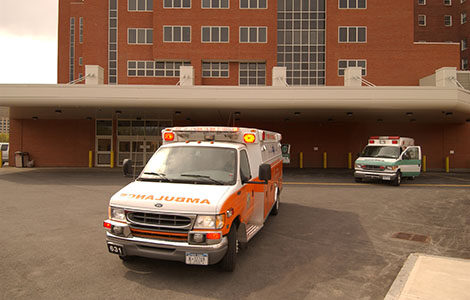Gain Critical Care Experience
In this one-year non-ACGME training position, fellows can expect to work closely with Albany Medical Center's Emergency Medicine Critical Care Division, participating in a range of services that expand their critical care experiences. Graduates can expect to be comfortable with advanced cardiac resuscitation, extended management of the critically sick Emergency Department patient, complex airway management, critical care ultrasound, and more.
Albany Medical Center, a member of the Albany Med Health System, is the busiest Level 1 Trauma Center in New York State with approximately 4,000 trauma admissions annually. Albany Medical Center is also home to a Level 1 Pediatric Trauma Center and serves as the referral pediatric hospital in the region. Learn more about the facilities and community institutions where our fellows can train and gain experience treating unique, diverse cases.

Resources for Fellows
About the Albany Med Health System
Albany Medical Center, the anchor of the Albany Med Health System, is one of the largest teaching hospitals in New York State offering a wide range of outstanding clinical care – from routine preventative care to sophisticated cancer and surgical care to life-saving emergency medicine – while teaching the next generation of medical providers and advancing critical biomedical research.
Living in the Capital Region
Albany is a great place to live, learn and work. It is the center of a region known for its robust economy, arts and culture, colleges and universities and recreational opportunities.
Wellness
As a resident or fellow of Albany Medical Center, there are many resources available to you to help manage the demands of being a physician. Our goal is to promote work-life balance and overall wellness by advocating for you and providing you with the tools to reduce burnout, depression, and other stressors you may encounter during your training.